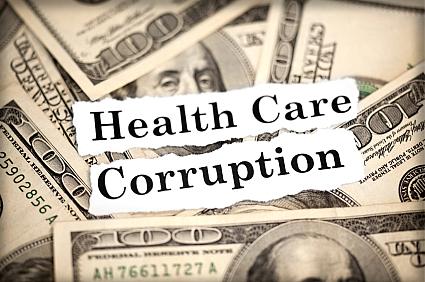Forget the Anthony Weiner Scandal – Consider the Sacking of New York’s Medicaid Inspector General

The Anthony Weiner scandal, to my mind, was the least interesting news coming out of New York political circles last week.
The most interesting is the apparent sacking of Jim Sheehan.
Jim Sheehan is the Inspector General for New York's $52.8 billion Medicaid program. Sheehan takes his job seriously and does not suffer fools, frauds, or free spenders. He sees it as his mission to uphold the trust that the American public has put into Medicaid to spend our money wisely.
In the four years since he took the job, he has recovered more than $1 billion in improper payments. Earning $1 billion is more than many corporate CEOs can claim these days. They certainly are paid more.
And it was the CEOs who were the most frustrated by Sheehan's efforts. Gov. Andrew Cuomo is expected to announce soon that Sheehan will be gone in 30 days. Gale Scott at Crain's Business News reported:
Mr. Sheehan's tactics enraged many in the hospital and nursing home arena, sparking legislative hearings in 2010 by now-former Long Island state Sen. Craig Johnson. Those Mr. Sheehan crossed have been quick to say they will not be sorry to see him go. Their main criticism is that, unlike health insurance companies, he treats all payment errors as fraud or abuse. Insurers who find such errors typically have only 60 days to recover their money and do not impose penalties during that time.
"If I were appointing his successor I'd look for someone who was not a punitive nit-picker, someone who would do the job without the 'gotcha' attitude,'' said Neil Heyman, president of the Southern New York Association, a nursing home group.
Heyman's group represents one of Sheehan's favorite targets. As Antidote pointed out in 2009, Sheehan went after low-quality nursing homes regularly. He told Antidote about some of his techniques for investigating fraud and abuse in an interview:
We have a variety of techniques that we use. One of them is handwriting analysis. But you can eyeball the documents as a lay person and see problems. For one, does it look like the same handwriting in same ink even though it's documentation of every three hours across 14 days? Nobody works that kind of shift. So that's a very bad thing. The second thing when patients are transferred between a hospital and back there are records that travel with them. If you look at something that has gone back and forth a couple of times you want to see what the charts looked like when they first left the facility. People are making copies all the time, and if someone has altered a record after the fact, you usually can find the original document.
He described another program called the Medicaid shopper in Medicaid Compliance News, which wrote:
Shoppers are undercover investigators who pretend to be Medicaid enrollees, using Medicaid cards to seek and/or get medical care from provider types, the report explains. In an interview, Sheehan tells MCN that shoppers are looking for indicators that all is not kosher at the places they visit (e.g., clinics, pharmacies). For example, if there is always a line of 10 patients waiting outside a particular clinic by 9 a.m., there's a risk that it is a "pill mill." Shoppers chat with other patients, who may unknowingly provide more clues by saying things like "This doctor is great. You can rent your Medicaid card to him or if you bring in three other patients, he pays you $10."
This should not be called "gotcha." This should be called protecting our public investment in the health care safety net and protecting most vulnerable populations from negligence and abuse.
Let's hope the Anthony Weiner sexting sideshow plays itself out soon and more attention can be paid to the future of the Office of the Medicaid Inspector General. It has been doing important work. It's a shame that it appears Sheehan was doing his job so well that it actually cost him his job.
